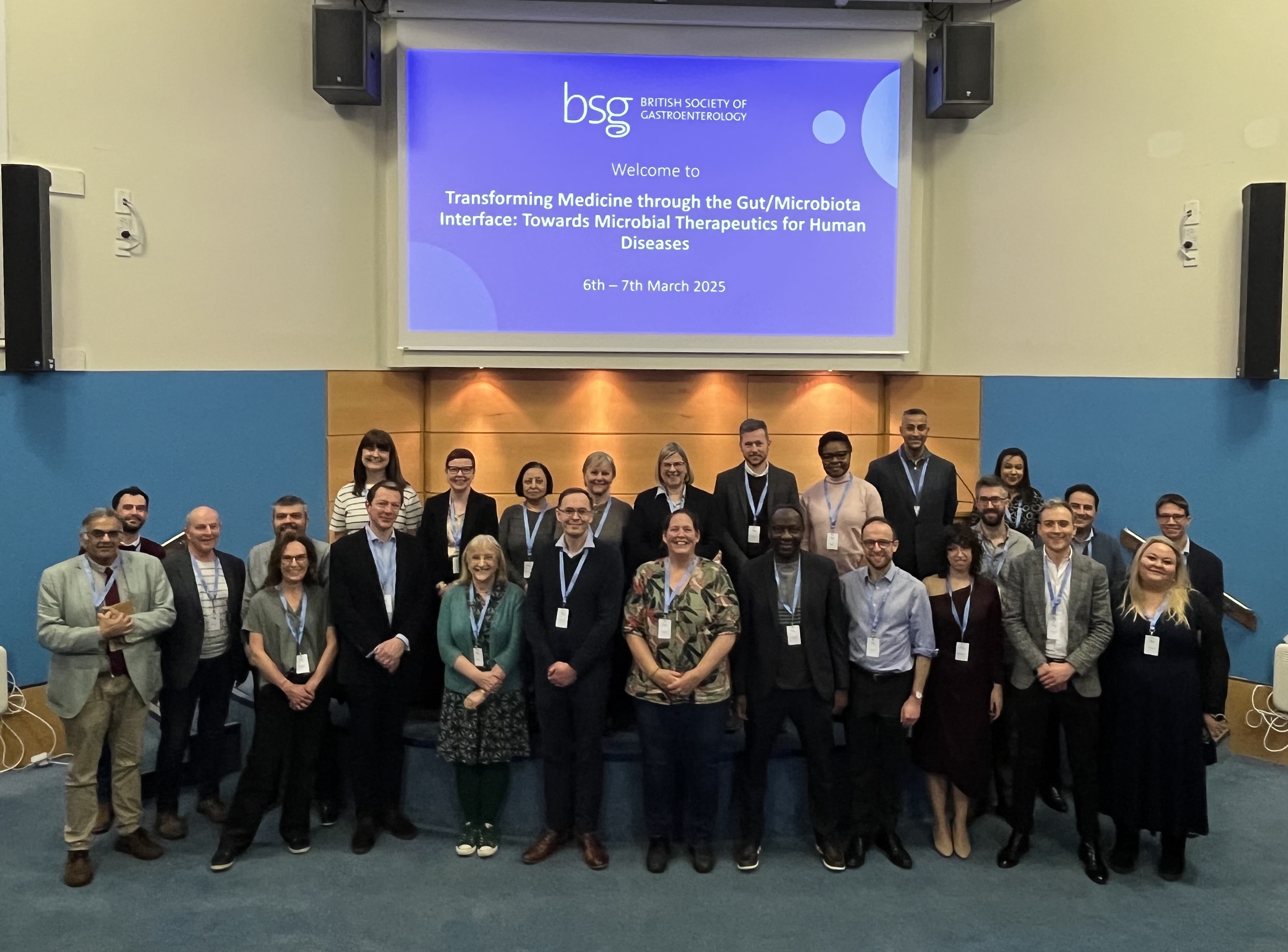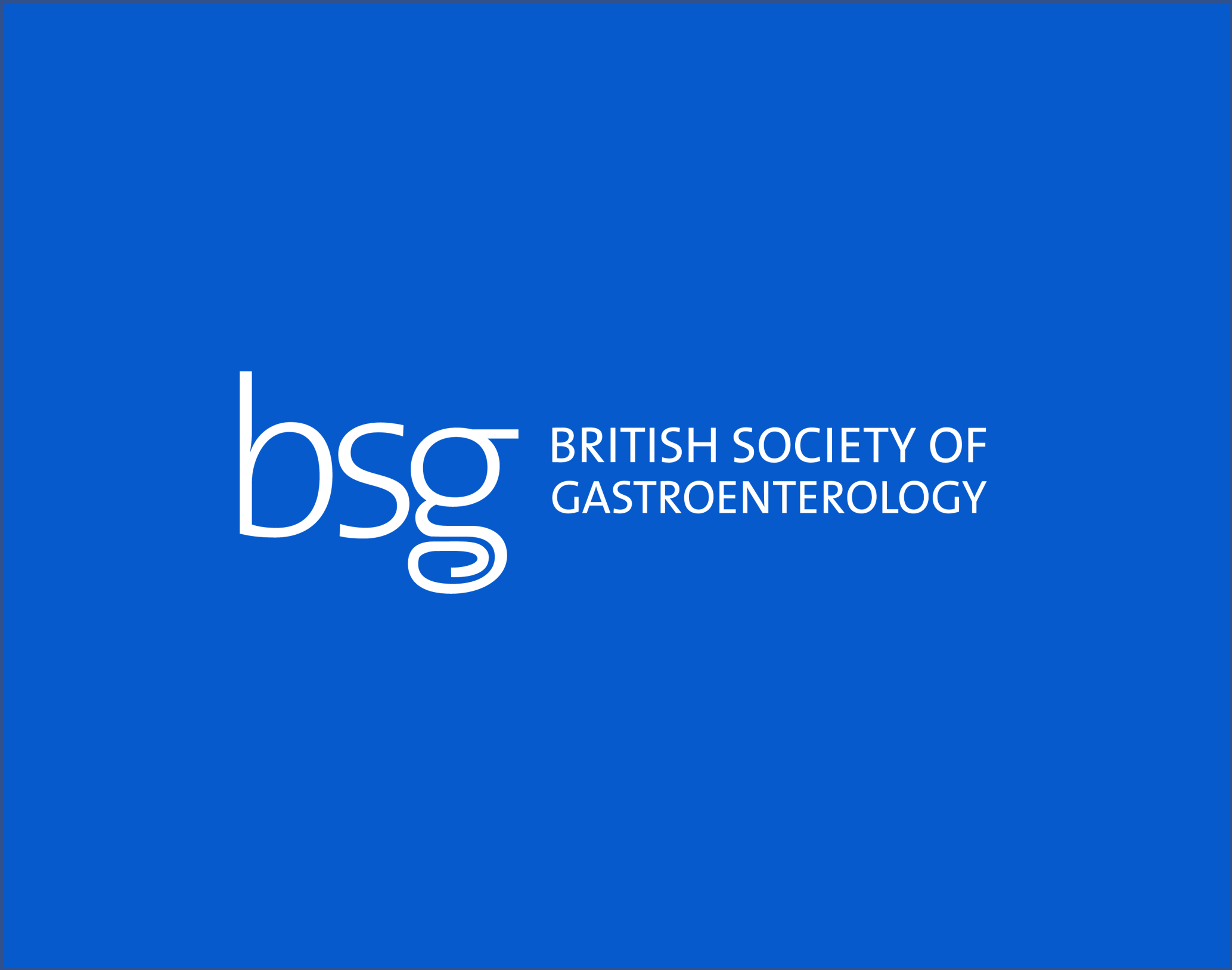BSG Gut Microbiota for Health Expert Panel
.jpg)
Georgina Hold is now Chair of the panel, with Horace Williams as Vice Chair. Richard Hansen, previous Chair, was instrumental in organising our recent successful conference in Edinburgh (see below). Three invited international speakers, and many GMfH panel members, delivered a programme of thought-provoking and state-of the-art talks.
Mona Bajaj-Elliott delivered a moving tribute to Nigel Klein, a valued former panel member. An authoritative review paper, based on the programme, is underway.
The panel continues to focus on all aspects of the gut microbiome in the context of health, but specifically on the regulation of faecal microbiota transplantation (FMT) and the production of high-level scientific articles. Another key focus is to raise awareness and understanding of the gut microbiota among the general public, clinicians and the media.
Goals
- Networking. To provide a regular forum for those interested in clinical gut microbiota-related science to meet, discuss and integrate.
- Collaboration. To identify gaps in research, and to initiate and support clinical science.
- Education. To host educational events, including workshops and conferences.
- Expertise. To provide an authoritative voice on the gut microbiota, within BSG-aligned publications and via other channels.
- Advocacy. To increase awareness and understanding among clinicians of the gut microbiota and its impact on health, and to act as a conduit for clinicians to access and understand what is reliably known in the field and to support best practice.
- Standards. The panel, which uniquely includes engagement from a UK regulator, plays an important role in the development of clinical research standards and guidelines in the field. For instance, the two iterations of the joint BSG/Healthcare Infection Society FMT guidelines (see below) were instigated and led by GMfH members (Gut 2018 and 2024). Also, in response to clinical demand, the panel established a forum for case-by-case clinical guidance on the compassionate use of FMT beyond the C. difficile and research settings.
Frequently asked questions about the gut microbiota and health
The panel has put together statements and responses to questions that may be asked about the gut microbiota by healthcare professionals, members of the public or the press. The document can be downloaded here.
Recent Achievements
- Contribution to the International Consensus Statement on Microbiome Testing in Clinical Practice (Porcari et al 2025)
- ‘Transforming Medicine through the Gut/Microbiota Interface: Towards Microbial Therapeutics for Human Disease’: a conference in Edinburgh, 6-7th March 2025
- Instigation and formulation of the first BSG/HIS guidelines for FMT , and the subsequent update (Gut2018 and 2024)
- Instrumental in the formulation of the NICE guidelines for FMT treatment of refractory or recurrent Clostridiodes difficile (2021)
- In conjunction with Guts UK, production of information leaflets for the general public:
- An explanation of commercial gut microbiome (poo) testing
- An explanation of faecal microbiota transplantation.
- An explanation of the role of the gut microbiome in health and disease.
- Letter to Archives of Disease in Childhood, calling for clinical availability of next generation microbiome sequencing.
Featured paper of interest
Porcari, S., Ciccarese, C., Heidrich, V. et al. Fecal microbiota transplantation plus pembrolizumab and axitinib in metastatic renal cell carcinoma: the randomized phase 2 TACITO trial. Nat Med (2026). https://doi.org/10.1038/s41591-025-04189-2
Renal cell carcinoma often shows limited durable benefit from first-line immune checkpoint inhibitor (ICI)–based therapy, and the gut microbiome has emerged as a potential modulator of treatment response. In the randomized, double-blind, placebo-controlled phase 2a TACITO trial, faecal microbiota transplantation (FMT) from complete ICI responders was tested in treatment-naive patients with metastatic RCC receiving pembrolizumab plus axitinib. Although the primary endpoint of 12-month progression-free survival was not met, donor FMT significantly improved median progression-free survival and showed a higher objective response rate compared with placebo. Donor FMT led to confirmed microbial engraftment, increased α-diversity, and greater shifts in microbiome composition, with changes in specific strains—rather than overall engraftment—associating with clinical benefit. These findings support the safety and potential efficacy of selected donor FMT as an adjunct to ICI-based therapy in metastatic RCC and warrant further investigation.
There is also a new guide to UK probiotic products: AEProbio Guide (https://probioticguide.uk/)

Current Members
| Ailsa Hart (Chair Emeritus; St Mark’s Hospital, Harrow) | Julie Harrington (Guts UK) |
| Alexander Langford (University of Coventry) | Jonathan Segal (University of Melbourne) |
| Alvin Ochieng (Norfolk & Norwich University Hospitals) | Jonathan Swann (Imperial College London) |
| Anastasia Theodosiou (University of Glasgow) | Julian R. Marchesi (Chair Emeritus; Imperial College London) |
| Ann Muls (The Royal Marsden NHS Foundation Trust) | Julie Thompson (Salford Royal Hospital; Guts UK; Public Representative) |
| Arjan Narbad (Quadram Institute) | Kelsey Jones (Great Ormond Street Hospital for Children) |
| Barry Campbell (University of Liverpool) | Konstantinos Gerasimidis (University of Glasgow) |
| Ben Mullish (Imperial College London) | Linda Thomas (Secretary to the GMfH panel) |
| Blair Merrick (Guy’s & St Thomas’ NHS Foundation) | Lindsay Hall (University of Birmingham) |
| Chris Lamb (Newcastle University) | Lindsey Edwards (King’s College London) |
| Chris Stewart (Newcastle University) | Lucy Cope (BSG) |
| Chrysi Sergaki (NIBSC) | Mona Bajaj-Elliott (Chair Emeritus; UCL Great Ormond Institute of Child Health) |
| Dagmar Alber (UCL Great Ormond Institute of Child Health) | Naveen Sharma (Heart of England NHS Foundation) |
| Debbie Shawcross (King’s College London) | Ngozi Elumogo (Norfolk and Norwich University Hospitals) |
| Franklin Nobrega (University of Southampton) | Peter Whorwell (University of Manchester) |
| Georgina Hold (Chair; UNSW, Australia) | Richard Hansen (Chair Emeritus; University of Dundee) |
| Horace Williams (Vice Chair; Imperial College London) | Rohma Ghani (Imperial College London) |
| Iain Chapple (University of Birmingham) | Simon Goldenberg (Guy’s & St Thomas’ NHS Foundation Trust) |
| Ian Rowland (formerly University of Reading) | Siobhan McCormack (British Society of Lifestyle Medicine) |
| Indrani Mukhopadhya (University of Aberdeen) | Tanya Monaghan (University of Nottingham) |
| James Alexander (Imperial College London) | Tariq Iqbal (Chair Emeritus; University Hospital Birmingham) |
| James Kennedy (Royal Berks Hospital & University of Reading) | Tom Butler (University of Manchester) |
| James Kinross (Imperial College London) | Tracey Maxfield (Airedale General Hospital) |
| Joanne Santini (University College London) | Vandana Jain (King’s College Hospital) |
| John McLaughlin (University of Manchester) | Vishal Patel (KCL Institute of Liver Studies) |